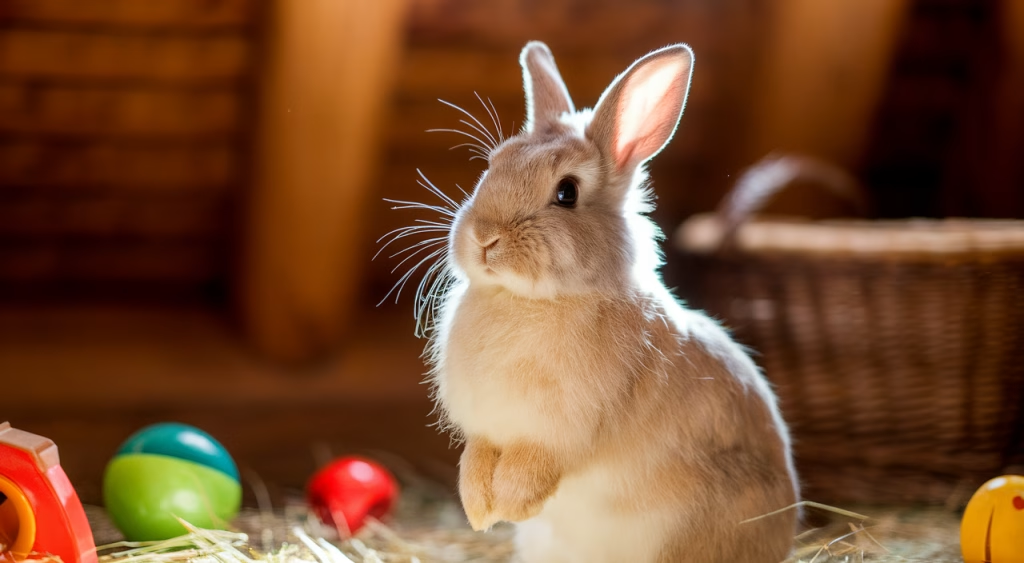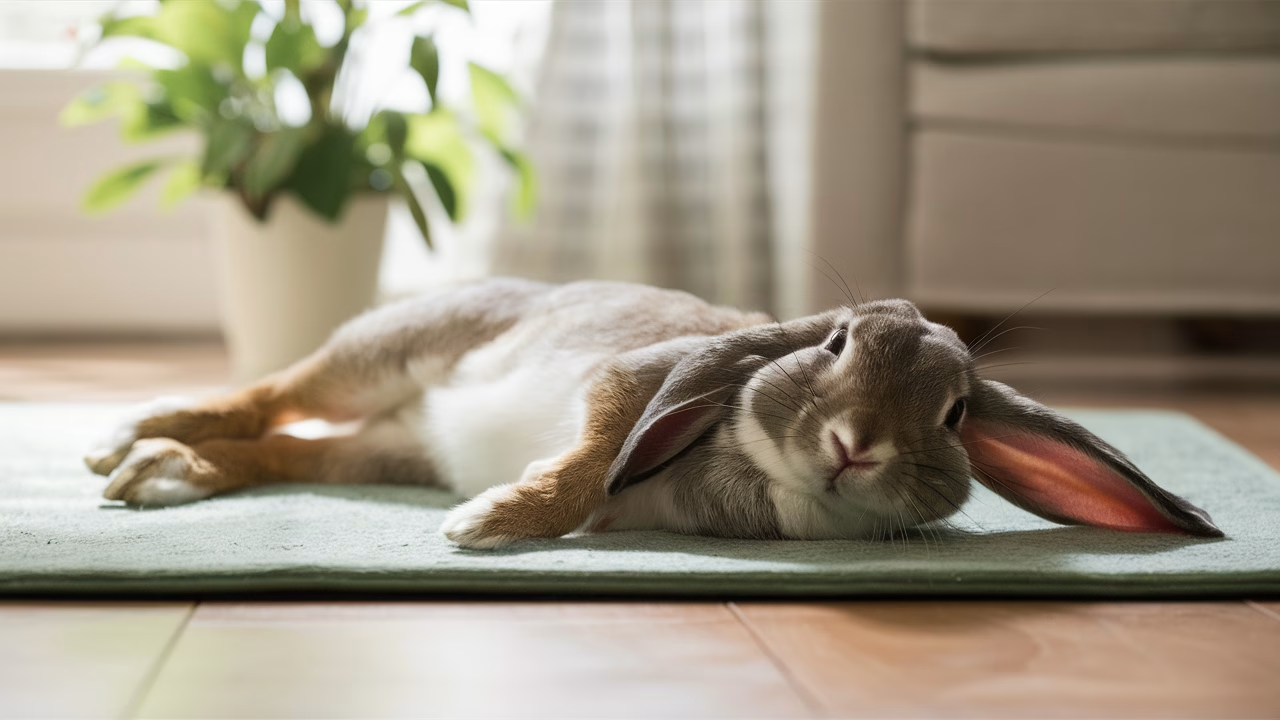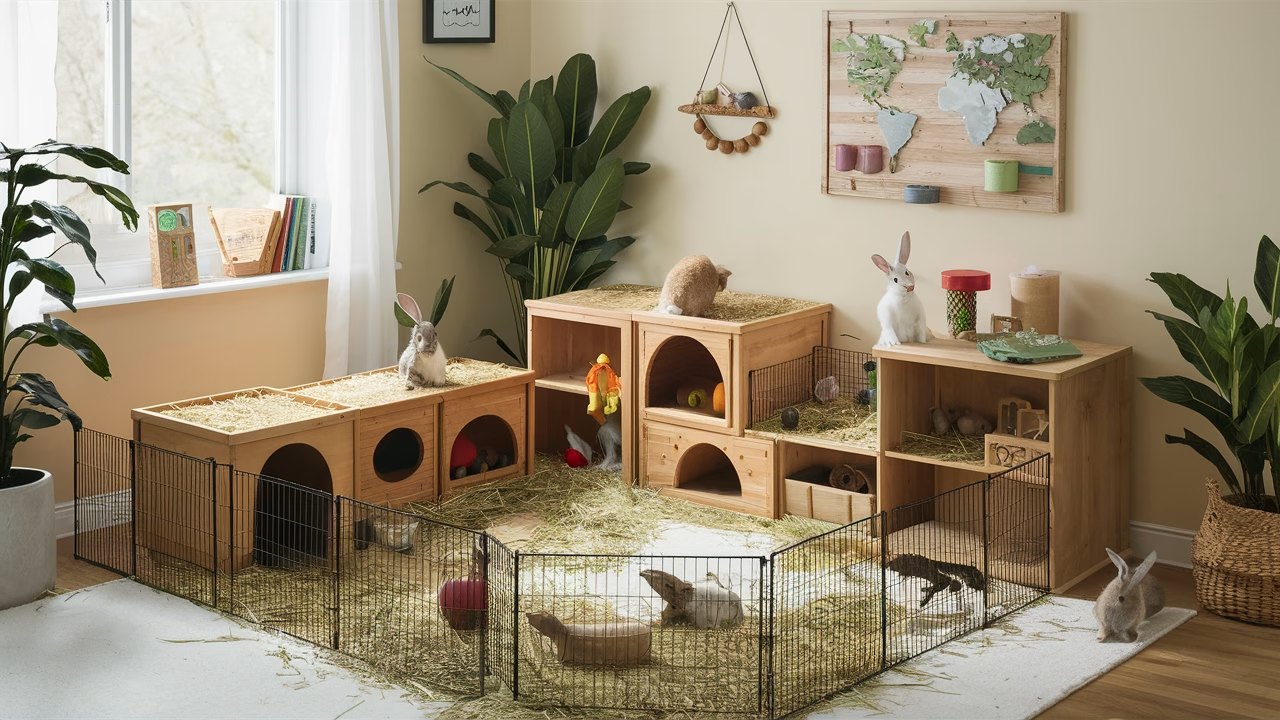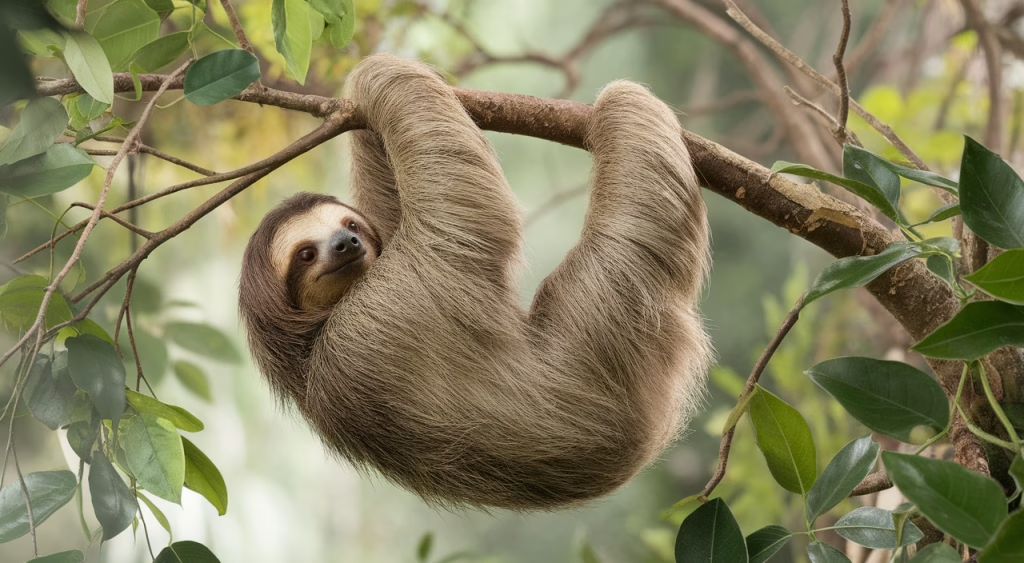How Can You Tell If Your Rabbit is Happy or Stressed?
Rabbits are masters of subtlety when it comes to expressing their emotions. A blissfully happy bunny and one experiencing stress might look surprisingly alike to untrained eyes. But when you understand rabbit behavior deeply, every ear flick and body flop tells a clear story about your pet’s wellbeing. Let’s break down the crucial differences between a content rabbit and one dealing with stress—knowledge that could literally save your bunny’s life.
- TL;DR:
- Relaxed Posture: Happy rabbits sprawl or flop sideways; stressed ones sit hunched or loaf tightly.
- Movement Patterns: Joyful binkies mean bliss; frozen alertness hints at tension.
- Ear Language: Relaxed, mobile ears = contentment; erect or pinned ears = anxiety.
- Feeding Behavior: Happy rabbits eat steadily and consume cecotropes; stressed rabbits may lose appetite and digestive health.
- Social Signs: Bonded bunnies interact, groom, or “chin”—withdrawn or overly aggressive behavior signals distress.
- Why It Matters: Rabbits hide illness and stress well; knowing signs can prevent severe health decline.
Understanding Rabbit Behavior Fundamentals
Rabbit behavior represents a fascinating blend of instinct, social intelligence, and emotional expression that we’re only beginning to fully understand. As natural prey animals, rabbits have evolved sophisticated ways to mask vulnerability, including stress and illness symptoms. For you as a rabbit owner, this evolutionary trait means seemingly tiny behavioral signals can reveal massive insights about your bunny’s overall wellbeing and rabbit health status.
Interpreting Clear Signs of Happiness in Pet Rabbits
Let’s start with one of the most theatrical moves in the rabbit behavior catalog: the famous dead bunny flop. This dramatic lie-down maneuver, where your rabbit suddenly topples onto their side and stays completely still, signals deep trust and absolute relaxation with their environment.
Then there’s the spectacular binky—the ultimate expression of rabbit happiness and joy. When your rabbit binkies, they explosively leap into the air, twist their body mid-flight, and kick out their back legs in pure celebration. It’s like watching a fluffy acrobat celebrate winning the lottery. If your bunny regularly binkies, you can rest completely easy—they’re experiencing happiness beyond belief!
Other unmistakable rabbit behavior signs of contentment include:
- Soft, rhythmic tooth grinding that sounds like gentle purring
- Actively exploring their room or enclosure with obvious curiosity
- Engaging in playful behavior and enthusiastic toy interaction
- Maintaining regular, thorough self-grooming sessions
- Sleeping peacefully with legs kicked out or belly exposed
Identifying Dangerous Symptoms of Stress in Rabbits
Stress in pet rabbits goes far beyond simple discomfort—it’s a serious threat to rabbit health that can spiral into life-threatening illness and even premature death. Unlike content bunnies displaying relaxed rabbit behavior, a stressed rabbit will consistently demonstrate these warning signs:
- Maintaining a hunched, tight loaf-like position, muscles ready to flee
- Keeping ears rigidly erect or flattened back—never naturally relaxed
- Displaying wide, hyper-alert eyes paired with rapid, shallow breathing
- Actively avoiding social interaction or responding with unexpected aggression
- Retreating to dark hiding spots and refusing to come out
Perhaps most alarming for rabbit health is the nutritional self-sabotage pattern: chronically stressed rabbits stop producing or consuming their essential cecotropes (special nutrient-dense droppings), leading to dangerous digestive system breakdowns. If your bunny suddenly isn’t pooping normally or eating their usual amounts, stress could be the silent but deadly culprit affecting their wellbeing.
Behavioral Cues in Content vs. Stressed Rabbits
Comparison Chart: Healthy vs. Stressed Rabbit Behavior
| Behavior Category | Happy Rabbit | Stressed Rabbit |
|---|---|---|
| Posture | Sprawled, flopped on side or back | Loaf position, hunched tightly |
| Movement | Binkies, playfulness, exploration | Stillness, hiding, bolting suddenly |
| Ear Position | Relaxed, mobile, expressive | Erect and alert, or pinned back |
| Vocalization | Soft tooth purring | Tooth grinding (tense), thumping |
| Eating Habits | Normal, including cecotrope consumption | Lack of appetite, nutritional decline |
| Sleeping | Relaxed, exposed positions | Light dozing in alert positions |
Critical Physiological Differences
You can’t always rely on rabbit behavior alone to assess your pet’s wellbeing—sometimes their body tells the most important part of the story. A rabbit’s physiology reacts dramatically under stress, even when they’re desperately trying to hide their distress from you.
- Breathing Patterns: Happy rabbits maintain slow, even breathing rhythms. Stressed ones breathe quickly and shallowly, often visibly panting.
- Digestive Health: Chronic stress significantly decreases gut motility, potentially leading to GI stasis—a frequently fatal condition in pet rabbits.
- Eye Expression: Wide, glossy eyes typically suggest high alertness or panic. Genuinely relaxed rabbits blink slowly and frequently.
- Pupil Dilation: Noticeably dilated pupils often indicate fear or intense stress responses.
Understanding both outward rabbit behavior signs and internal wellness indicators provides you with a complete picture of your rabbit’s health status and emotional state.
Importance of Environment and Care for Rabbit Health
Your rabbit’s daily surroundings profoundly influence their mood, stress levels, and overall rabbit behavior patterns. A peaceful, predictable, and properly enriched environment naturally fosters healthy behavior and optimal rabbit health. Here’s how to keep your bunny calm, comfortable, and thriving:
- Adequate Space to Roam: Pet rabbits need significantly more than cramped cage living—ensure ample space for stretching, hopping, and natural movement.
- Safe Hideout Areas: Provide multiple enclosed spaces where your rabbit can retreat when feeling overwhelmed or seeking security.
- Mental Enrichment Tools: Rotate toys, tunnels, and safe chewables to keep minds actively engaged and prevent destructive behaviors.
- Consistent Daily Routine: Sudden changes in feeding times, living environments, or household sounds dramatically raise stress levels.
- Gentle, Respectful Handling: Never grab your rabbit suddenly or force interaction. Let them approach you naturally and always respect their comfort boundaries.
Recognizing and Addressing Stress in Pet Rabbits
So what should you do when concerning signs of distress appear in your rabbit’s behavior?
- Observe Systematically: Keep detailed notes about changes in eating patterns, bathroom habits, and daily rabbit behavior. Tracking frequency reveals important patterns.
- Evaluate Environment Thoroughly: Consider recent changes—loud noises, new pets, different cage placement, household disruptions. What shifted recently?
- Address Identified Deficiencies: Critically rethink their habitat setup. Add mental stimulation, comfortable bedding, or consider companion rabbits if appropriate.
- Consult Veterinary Care: Stress frequently masks serious underlying illness in pet rabbits. Any unexplained behavioral shifts warrant professional assessment immediately.
Above all, remember this crucial truth: your rabbit isn’t just trying to survive day-to-day—they’re actively trying to thrive in your care. With careful attention to their complex rabbit behavior patterns, you become their most fierce advocate and trusted companion in maintaining optimal rabbit health.
How Sea Spiders Pump Blood Using Their Guts: Revolutionary Marine Biology Discovery
Frequently Asked Questions
- How do I know if my rabbit is happy?
Look for binkies, the ‘dead bunny flop’, soft-purring tooth grinding, playful energy, and stretched-out sleep postures. - Why does my rabbit freeze suddenly?
Freezing is a stress or fear reaction. They’re processing stimuli and preparing to flee if needed. - Is thumping a sign of a happy rabbit?
No, thumping typically signals fear, agitation, or alert to perceived danger. - Why has my rabbit stopped eating?
Loss of appetite may indicate stress or a critical health issue like GI stasis. Consult a vet immediately. - Do rabbits get lonely?
Yes, they’re social animals. Isolation can cause stress or depression. Consider a bonded companion for your rabbit. - What noises do happy rabbits make?
Soft, rhythmic tooth grinding (known as content purring) typically happens when a rabbit feels cozy and loved. - Do rabbits like being held?
Some do if gradually conditioned, but most prefer to interact with their feet safely on the ground.





